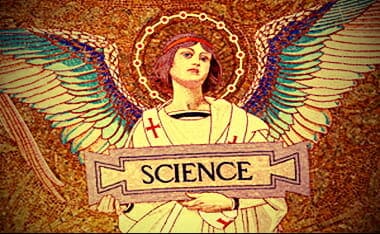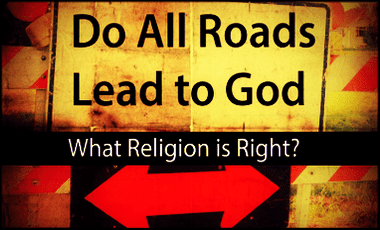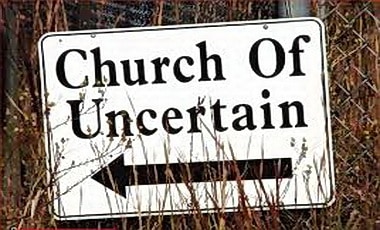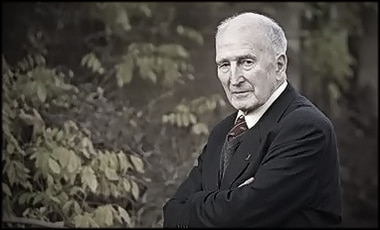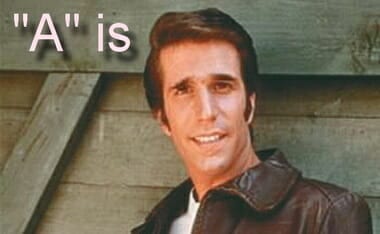(This was originally posted Nov 19, 2015, I have refreshed media and edited esthetics a tad)
I have been too busy as-of-late to keep up with “Concepts,” an article in a local small paper. This recent article did, however, peak my interest and awoke me from my slumber. (As usual, you can click the graphic to enlarge to be able to read the article if so desired [below].) Per John’s modus operandi he conflates separate issues and then makes his point at the end that has nothing to do with his previous points or set-up. I myself will jump around Mr. Huizum’s article a bit, clarifying and expanding [correcting mainly] his thoughts as space surely does not allow him but it does me.
Let’s jump into this statement and where I think John, as an atheist, puts all his cookies into the “science” bag, otherwise known as “scientism.”
- “To my knowledge, science has not yet discovered a purpose for the universe,…”
This is key (*Big Booming Voice w/Echo Effects*): science will NEVER find a purpose for the universe.
“Purpose” — as such, is the area exclusively reserved to that of philosophy and theology, not science. From reading previous article’s by John, he seems to have a distorted view of epistemology and how one expresses “truth statements” with a coherent foundation/worldview. Let us define some words and concepts as we continue on our journey brought to us by “Concepts.”
Epistemology – “the branch of philosophy concerned with questions about knowledge and belief and related issues such as justification and truth.”
C. Stephen Evans, Pocket Dictionary of Apologetics & Philosophy of Religion (Downers Grove, IL: IVP, 2002), 39.
What John seems to place as his “ultimate truth” is science. This view is commonly referred to as “scientism.” What is scientism, you ask?
Scientism constitutes the core of the naturalistic understanding of what constitutes knowledge, its epistemology. Wilfrid Sellars says that “in the dimension of describing and explaining the world, science is the measure of all things, of what is that it is, and of what is not that it is not.”‘ Contemporary naturalists embrace either weak or strong scientism. According to the former, nonscientific fields are not worthless nor do they offer no intellectual results, but they are vastly inferior to science in their epistemic standing and do not merit full credence. According to the latter, unqualified cognitive value resides in science and in nothing else. Either way, naturalists are extremely skeptical of claims about reality that are not justified by scientific methods in the hard sciences.
William Lane Craig and Chad Meister, God is Great, God is Good: Why Believing in God Is Reasonable and Responsible (Downers Grove, IL: IVP, 2009), 35.
In another article scientism is explained as well as naturalism and the differences:
One gram of DNA – the weight of two Tylenol – can store the same amount of digitally encoded information as a hundred billion DVD’s. Yes, you read correctly, I said a hundred billion DVD’s. Every single piece of information that exists on the Earth today; from every single library, from every single data base, from every single computer, could be stored in one beaker of DNA. This is the same DNA/Genetic Information/Self-Replication System that exists in humans and in bacteria (which are the simplest living organisms that exist today and have ever been known to exist). In short, our DNA-based genetic code, the universal system for all life on our planet, is the most efficient and sophisticated digital information storage, retrieval, and translation system known to man.
…scientism (an epistemological thesis) with naturalism (an ontological thesis). Scientism is the view that we should believe only what can be proven scientifically. In other words, science is the sole source of knowledge and the sole arbiter of truth. Naturalism is the view that physical events have only physical causes. In other words, miracles do not happen; there are no supernatural causes.
William Lane Craig, Is Scientism Self-Refuting, Q & A #205
One should keep in mind that a coherent worldview answers at least four important questions about life that science (especially “scientism”) cannot, getting back to purpose. Ravi Zacharias makes accessible these questions by stating that a “coherent worldview must be able to satisfactorily answer four questions: that of origin, meaning, morality, and destiny” (Ravi Zacharias, Deliver Us From Evil [Nashville, TN: Word Publishers, 1997], 219–220). Science can be used, and should be used, as a tool in making a reasonable case for purpose and meaning in life.
Science, then, is merely a handmaiden of these richer studies in life’s ultimate meaning, not the determining factor.
“Scientism is the view that all real knowledge is scientific knowledge—that there is no rational, objective form of inquiry that is not a branch of science” (Edward Feser, Blinded by Scientism [March 9th, 2010]). Which is one reason that it is self refuting, because, it itself is a philosophical proposition ABOUT science while claiming not to be. Which two philosophical naturalists admit in a moment of honesty:
- Lewontin: “we are forced by our a priori adherence to material causes to create an apparatus of investigation and a set of concepts that produce material explanations, no matter how counter-intuitive, no matter how mystifying to the uninitiated. Moreover, that materialism is absolute, for we cannot allow a Divine Foot in the door.”
- Searle: “There is a sense in which materialism is the religion of our time, at least among most of the professional experts in the fields of philosophy, psychology, cognitive science, and other disciplines that study the mind. Like most traditional religions, it is accepted without question and it provides the framework within which other questions can be posed, addressed, and answered.”
Again, the belief that science alone gives us knowledge is a philosophical statement, not a scientific one. This is no longer science, but the scientistic worldview of naturalism, which affirms that nature is all there is and that only science can give us knowledge. As the late astronomer Carl Sagan put it: “The cosmos is all that is or ever was or ever will be.” Dawkins, like Sagan, speaks more as an amateur metaphysician than as a scientist.
I dealt a little with origins in a previous review of one of his articles in the past, but the point is that John places on science’s plate a proposition that it will never be able to answer. Maybe a Tennyson poem will assist in explaining to John the meaning of the universe without God:
In writing the poem, Tennyson was influenced by the ideas of evolution presented in Vestiges of the Natural History of Creation which had been published in 1844, and had caused a storm of controversy about the theological implications of impersonal nature functioning without direct divine intervention. The fundamentalist idea of unquestioning belief in revealed truth taken from a literal interpretation of the Bible was already in conflict with the findings of science, and Tennyson expressed the difficulties evolution raised for faith in “the truths that never can be proved”.
Are God and Nature then at strife,
That Nature lends such evil dreams?
So careful of the type she seems,
So careless of the single life;
That I, considering everywhere
Her secret meaning in her deeds,
And finding that of fifty seeds
She often brings but one to bear,
I falter where I firmly trod,
And falling with my weight of cares
Upon the great world’s altar-stairs
That slope thro’ darkness up to God,
I stretch lame hands of faith, and grope,
And gather dust and chaff, and call
To what I feel is Lord of all,
And faintly trust the larger hope.
This poem was published before Charles Darwin made his theory public in 1859. However, the phrase “Nature, red in tooth and claw” in canto 56 quickly was adopted by others as a phrase that evokes the process of natural selection. It was and is used by both those opposed to and in favor of the theory of evolution. However, at the end of the poem, Tennyson emerges with his Christian faith reaffirmed, progressing from doubt and despair to faith and hope, a dominant theme also seen in his poem “Ulysses.”
…Who trusted God was love indeed
And love Creation’s final law
Tho’ Nature, red in tooth and claw
With ravine, shriek’d against his creed…
…So runs my dream, but what am I?
An infant crying in the night
An infant crying for the light
And with no language but a cry…
…If e’er when faith had fallen asleep,
I hear a voice ‘believe no more’
And heard an ever-breaking shore
That tumbled in the Godless deep;
A warmth within the breast would melt
The freezing reason’s colder part,
And like a man in wrath the heart
Stood up and answer’d ‘I have felt.’
No, like a child in doubt and fear:
But that blind clamour made me wise;
Then was I as a child that cries,
But, crying knows his father near…
(Wiki)
Atheists themselves say that nothing matters in a universe without God giving it meaning:
Which leads me into another statement John makes near the end of the article, and, has in it a self-refuting statement of sorts. I will explain, John says:
- I do not think atheists are more or less happy than believers, so it is possible to live a useful life without a belief in a god. Scientists may not know what the purpose of the Universe is, but we the living find our own purpose for living, which is often just to help or be interested in others.
The mass murderer or tyrant may find his purpose in doing what he does. The rapist as well. Those actions we rightly abhor may be the ones that provide purpose or fulfillment in theirs. You see, John has no code that he can ascribe to himself and expect others to follow… outside of wish fulfillment that is.
He says that life’s meaning is “often just to help or be interested in others.” What a trite explanation of existence! Mussolini explains to John the related topic of relativism and John trying to impose HIS MEANING onto the masses, or think that the masses should agree with him when Tennyson so pointedly says that nature’s purpose is “red in tooth and claw” ~ here is another view that lines up more with John’s view rather than the Judeo-Christian ethic:
“Everything I have said and done in these last years is relativism by intuition…. If relativism signifies contempt for fixed categories and men who claim to be bearers of an objective, immortal truth… then there is nothing more relativistic than fascistic attitudes and activity…. From the fact that all ideologies are of equal value, that all ideologies are mere fictions, the modern relativist infers that everybody has the right to create for himself his own ideology and to attempt to enforce it with all the energy of which he is capable.”
Mussolini, Diuturna pp. 374-77, quoted in A Refutation of Moral Relativism: Interviews with an Absolutist (Ignatius Press; 1999), by Peter Kreeft, p. 18.
Again, let us see what another person who may understand the complexities of the issue a bit more than John shows us, and that is Malcolm Muggeridge (a British journalist, author, satirist, media personality, soldier-spy and, in his later years, a Catholic convert and writer), who said:
“If God is ‘dead,’ somebody is going to have to take his place. It will be megalomania or erotomania, the drive for power or the drive for pleasure, the clenched fist or the phallus, Hitler or Hugh Heffner.”
Ravi Zacharias, The Real Face of Atheism (Grand Rapids, MI: Baker Books, 2004), 32.
I know John HOPES people see reality like he does, but he does not have a meta-narrative that is internally consistent to express to mankind the need to “help or be interested in others.” The Nazi’s thought they were doing this? Why are they wrong and John right? He has no epistemology that is internally consistent to help him ask these non-scientific questions. So while he can feel that the atheist can have a happy life, aside from this Epicurean goal, happiness is not synonymous with moral, or meaningful in the ultimate sense.
Epicurean ~ “Epicurus (341-271 B.C.) was a Greek philosopher who was born on the isle of Samos but lived much of his life in Athens, where he founded his very successful school of philosophy. He was influenced by the materialist Democritus (460-370 B.C.), who is the first philosopher known to believe that the world is made up of atoms…. Epicurus identified good with pleasure and evil with pain.” He equated using pleasure, diet, friends, and the like as “tools” for minimizing bad sensations or pain while increasing pleasure or hedonism.
Taken from Louise P. Pojman, Philosophy: The Quest for Truth, 5th ed. (New York: Oxford Press, 2002), 499; taken from a chapter from my book dealing with homosexuality and natural law, footnote #42.
I will zero in on a point that John makes, but that is lost on him in his making an either/or distinction in the extremes.
- “If God created the natural laws and if God were omnipotent, I would have to assume that God could also destroy them or make them unworkable or eliminate them.”
True enough, but, we can ad a third understanding to John’s statement: He [God] could intervene from-time-to-time in nature. For example, the virgin birth. The miracle was in no way the development and birth of Jesus, the miracle was in the conception. God introduced unique genetic material to Mary’s womb. The Laws of Nature took over from there. There was a standard nine month pregnancy followed by a normal birth.
Lewis defines a miracle thus: “I use the word Miracle to mean an interference with Nature by supernatural power.” He describes the integration of miraculous intervention and the natural world in this way: “It is therefore inaccurate to define a miracle as something that breaks the laws of Nature. It doesn’t. … If God creates a miraculous spermatozoon in the body of a virgin, it does not proceed to break any laws. The laws at once take it over. Nature is ready. Pregnancy follows, according to all the normal laws, and nine months later a child is born. … The divine art of miracle is not an art of suspending the pattern. … And they are sure that all reality must be interrelated and consistent.
John-Erik Stig Hansen, M.D., D.Sc., Do Miracles Occur? (Academic Papers) Into the Wardrobe
Now, I think John also confuses some laws that he uses all the time. The Law of Morality for instance.
John Huizum has complained about the evils done in the name of religion in the past, and so posits a “law” that he expects others to see and adhere to, namely, murder in the name of God is morally, or absolutely wrong. However, in the naturalist view of the world, evil is not absolutely wrong… just currently taboo.
Books like, Demonic Males: Apes and the Origins of Human Violence (New York, NY: Houghton Mifflin Harcourt Publishing, 1997), and, A Natural History of Rape: Biological Bases of Sexual (Coercion Cambridge: MIT Press, 2000), make the point that rape — for instance — was a tool of survival in our evolutionary past, and so not “morally wrong” in any absolute sense. Not morally wrong because it aided the only real principle of nature, survival. If not absolutely wrong in the past, than theoretically rape is useful for our survival in the future. A position taken by Islamists in some part of our world surely.
Here are three short examples by atheists themselves making my point… er… really their point:
E X H I B I T ~ A
Atheist Dan Barker Says “Child Rape Is Morally Okay”
Richard Dawkins Says Rape Is Morally Arbitrary!
William Provine Evolution and the Meaning of Life
You see, who can REALLY say Hitler was wrong? “What’s to prevent us from saying Hitler wasn’t right? I mean, that is a genuinely difficult question” ~ Richard Dawkins. Ahh, no its not. Granted, it is for the person (John) who looks to nature alone for meaning, and his HOPE is that others see his view of life.
“Some unfortunate humans—perhaps because they have suffered brain damage—are not rational agents. What are we to say about them? The natural conclusion, according to the doctrine we are considering, would be that their status is that of mere animals. And perhaps we should go on to conclude that they may be used as non-human animals are used—perhaps as laboratory subjects, or as food.”
James Rachels, Created from Animals: The Moral Implications of Darwinism (New York: Oxford University Press, 1990), 186.
Um, in other words, the evolutionist has no way to say that the mentally ill cannot be made into chum/food, or NAZI like experiments.
But this “hope” wasn’t the basis for important decisions in our nations history, thank God! Like the writing of the Constitution for instance, written in the language of Natural Law, or in the Nuremberg Trials. A great example for what we are talking about here.
At the Nuremburg trials, when the judges/magistrates from Germany were being defended, one of the strongest arguments was that they were operating according to the law of their own land (cultural relativism). To that, a legitimate counter-question was raised, “But is there not a law above our laws?” John Warwick Montgomery, in his book The Law Above The Law, describes their argument:
“The most telling defense offered by the accused was that they had simply followed orders or made decisions within the framework of their own legal system, in complete consistency with it, and that they therefore ought not rightly be condemned because they deviated from the alien value system of their conquerors”
John Warwick Montgomery, The Law Above the Law (Minneapolis, MN: Bethany House Publishers, 1975), 24.
Nevertheless, the tribunal did not accept this justification. In the words of Robert H. Jackson, chief counsel for the United States at the trials, the issue was not one of power – the victor judging the vanquished – but one of higher moral law. Mr. Huizum has no foundational ethic or moral to make life meaningful in this ultimate sense. Which is the inclusion that real justice truly exists.
Men do not make laws. They do but discover them. Laws must be justified by something more than the will of the majority. They must rest on the eternal foundation of righteousness.
Calvin Coolidge, “Have Faith in Massachusetts,” Massachusetts Senate President Acceptance Speech (Jan. 7, 1914) ~ 30th President of the United States (1923–1929).
So far from John not seeing “the God-factor expressed in any law of nature he is aware of,” the Laws of Logic, the Moral Laws, Mathematics, and the like are glimpses into the “God-Factor.” Whether John admits to this or simply defines the proposition out of being considered (see below) is his convoluted lot in life of competing/self-refuting propositions guided by a metaphysical assumption about reality… not mine.
Professor: “Miracles are impossible Sean, don’t you know science has disproven them, how could you believe in them [i.e., answered prayer, a man being raised from the dead, etc.].”
Student: “for clarity purposes I wish to get some definitions straight. Would it be fair to say that science is generally defined as ‘the human activity of seeking natural explanations for what we observe in the world around us’?”
Professor: “Beautifully put, that is the basic definition of science in every text-book I read through my Doctoral journey.”
Student: “Wouldn’t you also say that a good definition of a miracle would be ‘and event in nature caused by something outside of nature’?”
Professor: “Yes, that would be an acceptable definition of ‘miracle.’”
Student: “But since you do not believe that anything outside of nature exists [materialism, dialectical materialism, empiricism, existentialism, naturalism, and humanism – whatever you wish to call it], you are ‘forced’ to conclude that miracles are impossible”
Norman L. Geisler & Peter Bocchino, Unshakeable Foundations: Contemporary Answers to Crucial Questions About the Christian Faith (Minneapolis, Minnesota: Bethany House, 2001), 63-64.
This leads me to my final correction of some bad thinking on John’s part. When he says, “No scientific formula ever needed an asterisk or a caveat that said ‘God willing,'” the asterick merely precedes the formula and is next to the word “science.” Without the Judeo-Christian metaphysic, science would not be possible:
…as Whitehead pointed out, it is no coincidence that science sprang, not from Ionian metaphysics, not from the Brahmin-Buddhist-Taoist East, not from the Egyptian-Mayan astrological South, but from the heart of the Christian West, that although Galileo fell out with the Church, he would hardly have taken so much trouble studying Jupiter and dropping objects from towers if the reality and value and order of things had not first been conferred by belief in the Incarnation (Walker Percy, Lost in the Cosmos: The Last Self-Help Book)
To the popular mind, science is completely inimical to religion: science embraces facts and evidence while religion professes blind faith. Like many simplistic popular notions, this view is mistaken. Modern science is not only compatible with Christianity, it in fact finds its origins in Christianity…
(Columbia University, “The Origin of Science” [also here in non-PDF form])
Besides this, what are some of the philosophical presuppositions foundational to “science” that were birthed from Christianity?
- the existence of an objectively real world
- the comprehensibility of that world
- the reliability of sense perception and human rationality
- the orderliness and uniformity of nature
- and the validity of mathematics and logic.
(The Historic Alliance of Christianity and Science, Reasons.Org)
Again, Mr. Huizum seems to have strayed — as usual — far away from rational inferences based on a good understanding of the issues, rooted in history, easily accessible to him. Again, he just opines in the hope that others will dote over his “wisdom.” Not me, someone has to keep him honest.
